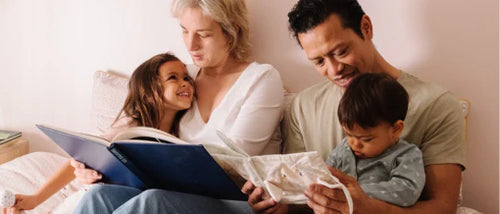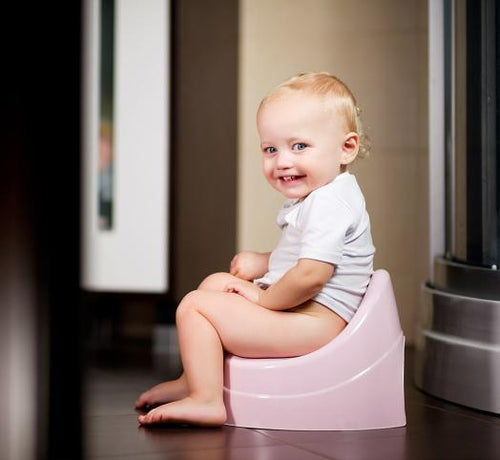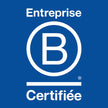Potty training is an important step for little ones: gradually abandoning diapers and learning to control their natural needs is a way to become big.
In most cases, this development takes place very naturally: 8 out of 10 children become clean spontaneously.
Discover our tips to best support your child's development!
On average, children become potty trained around 2 and a half years old during the day, and around 3 years old at night. However, there are large variations from one child to another, and it is essential to let your little one develop at their own pace. But then, how to detect the right moment? By simply observing your child!
SIGNS THAT ARE NOT DECEIVED
Whether your child is 18 months, 2 years or older, it is time to offer him the potty when he shows that he wants to take off his diapers: he tries to tear them off, cries during the change, complains when the diaper is full…
Also pay attention to their expressions: very often, children who are ready to potty emit a signal (mimic expression, posture or word) before doing their business. It is then up to you to play, bringing him quickly to the potty.
If your child is happy to sit there and the session is “conclusive”, he or she is on the right track! On the other hand, if he cries when he sees the potty, or if he regularly sits there without doing anything, it is probably a little early: you can postpone the experiment for a few weeks.
NEITHER TOO EARLY, NOR TOO LATE
It is completely useless to require a child who is too small to become potty trained: as long as he does not have control of his sphincters, he is simply incapable of restraining himself.
Conversely, when your child asks to take off the diapers, do not leave them on for convenience, even if there are accidents: if his desire to grow is curbed, he risks regressing and then wallowing in his role of baby in diapers. The transition to potty training will then probably be more difficult. A gradual process While some children become potty trained overnight, for most this learning is gradual.
After removing your child's diapers, be lenient and positive in the event of an accident: it is essential not to get angry or subject him to any pressure, which could risk causing him to panic. Summer is the ideal season to ditch diapers: you can leave your child naked or scantily clad and thus more easily clean up uncontrolled little pees.
CLEAN BY DAY…AND AT NIGHT?
In general, nighttime cleanliness occurs a few months after daytime cleanliness. As soon as your child no longer has accidents when he is awake, you can remove his diapers for naptime: he will most likely be able to restrain himself. For the night, observe his diapers in the morning: when they are frequently dry, it will be time to abandon them in turn.
Please note, however, that your child may continue to need nighttime protection for a little longer, without this being a problem: it is only from the age of 5 that nocturnal leaks are considered enuresis. It is then recommended to consult a pediatrician.
SCHOOL ENTRY DEADLINE
Is your child's first school year approaching and he or she is still not potty trained?
Try not to let yourself be overwhelmed by impatience: very often, the example of little classmates and the desire to integrate into the group have spectacular effects, and many children become potty trained at the very moment of entry to school.
In addition, a few accidents during the first weeks of class are perfectly normal: the teacher will probably ask you to slip a full set of diapers into her school bag to cover this eventuality.
In any case, do not scold your child: this will only complicate the situation.
Tolerance, self-confidence and encouragement are the best method to help him grow in harmony.




